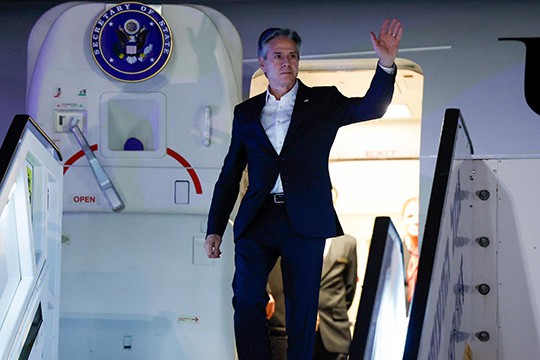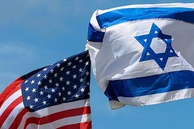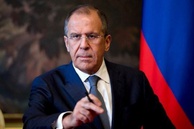On January 5-6, US Secretary of State Anthony Blinken visited Turkey. The results of the two-day visit did not receive much media coverage though. The topics discussed included the situation in Gaza, the Ukrainian conflict, trade, investments and security relations between the two countries and, of course, Ankara's support for Sweden's entry into NATO. As for the latter issue, it was only said that the US emissary had been “discussing the last steps in the process,” (1) and that the United States hopes for a positive solution of the issue within the next few weeks.
The close-lipped nature of these statements suggest that the sides had once again failed to agree on the exact timing of Sweden’s entry, so much awaited by the entire NATO community. Turkey continues to link Sweden's NATO membership to Ankara's efforts to purchase 40 new US-made F-16 fighter jets and modernizations kits to upgrade its existing fleet of F-16 aircraft. Some experts note that even though in late December 2013, the foreign affairs committee of Turkey’s Grand National Assembly approved Sweden’s application to join NATO, neither the Turkish MPs, nor their colleagues in the US Congress are actually unanimous on the “Scandinavian” and “weapons” issues. (2) It is assumed that Erdogan's anti-Israeli rhetoric and vocal support for Hamas do not contribute to strengthening mutual confidence with Washington and complicate the decision-making process on the F-16, although these two issues are not directly related.
At this stage, the algorithm of Ankara’s further moves should look like this: voting on the Swedish issue by the full parliament, followed by President Erdogan’s signature sealing the final decision. However, just on New Year’s Eve, the head of the foreign affairs commission of the Turkish parliament, Fuat Oktay, played down expectations for a speedy vote on Sweden’s application to join NATO in the full Grand National Assembly. (3) Such “postponement” is becoming an ingrained tradition in Turkish politics.
Ankara’s official complaints have to do with Stockholm’s “soft policy” towards representatives of Kurdish groups resident in the country, which the Turkish side classifies as terrorist. However, Ankara’s rhetoric changed during the July 2023 NATO summit in Vilnius, where President Erdogan said that his country “has never opposed NATO expansion,” (4) but emphasized that the final decision on the Swedish bid would rest with the Turkish parliament right after the lawmakers resumed their work in October. On October 1, there was a terrorist attack outside the Turkish parliament, and October 7 saw a new escalation in the Palestinian-Israeli conflict, which the Turkish authorities used to once again put on hold the NATO process. In mid-November, a meeting on the protocol on Sweden’s application in a parliamentary committee was postponed due to the need for a more detailed discussion of the initiative. During a November 30 telephone linkup with his Swedish counterpart Tobias Billström, Turkish Foreign Minister Hakan Fidan said that he expected that the matter would be finally agreed within the next few weeks.
Therefore, the general impression is that Turkey is deliberately delaying its decision in order to score more points and bargain for maximum bonuses in negotiations with the West.
On the one hand, a Turkish green light on Sweden’s NATO application can hardly be questioned since the Atlantic vector is an integral part of Ankara’s modern policy. Turkey still regards its membership in NATO as an important asset, given the NATO and US multi-purpose infrastructure deployed on its territory, the country’s close economic ties with the other NATO member states, and its dependence on foreign components for the development of the national military-industrial complex. In the US strategy, Turkey has traditionally been assigned the role of the main outpost against Russia at NATO’s southeastern flank, and the country itself has been perceived as an ideal place for conducting intelligence activities, which largely remains relevant today.
On the other hand, the Turkish leadership has in recent years demonstrated a desire to pursue a more independent policy within the framework of the North Atlantic Alliance. Right now, this change of wind is reflected in ramped up military and economic contacts with Russia and China, a special position on Western sanctions against the Russian Federation amid the Ukrainian crisis, etc. Moreover, Turkey’s geographical location at the crossroads of Middle Eastern conflicts, allows it to keep some aces up its diplomatic sleeve as a bargaining chip (for example, attempts to put pressure on Western countries on the issue of Syrian refugees). At the same time, it looks like such behavior is just a political game, a balancing act by the Turkish ruling circles meant to maximize benefits for themselves, rather than a fundamental readiness to pursue an autonomous line in the international arena.
Add to this the serious economic situation in Turkey, where annual inflation spiked to 64.8 percent in December 2023, (5) which, despite the official rhetoric about diversifying external contacts, dictates the need to focus on cooperation with the world’s first-tier economies.
Another significant factor is the upcoming municipal elections (scheduled for March 31, 2024), which many believe should become “a test of political strength and national trust” for the country’s ruling Justice and Development Party and personally for Recep Tayyip Erdogan. The Turkish leader will have to avenge himself for the past electoral losses (primarily in Istanbul and Ankara, where mayoral posts are currently held by representatives of opposition parties).
Against this backcloth, the “Swedish question” may become an element of political juggling by the Turkish ruling elite, regarding its domestic and foreign policy objectives, which means that its final solution may drag on for a very indefinite period.
----------------------------------------------------------------------------
[5] https://iz.ru/1629841/2024-01-03/smi-soobshchili-o-pokazatele-godovoi-infliatcii-turtcii-v-65
read more in our Telegram-channel https://t.me/The_International_Affairs

 11:53 12.01.2024 •
11:53 12.01.2024 •



























